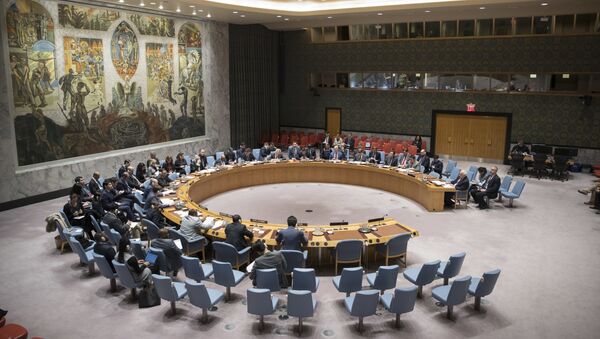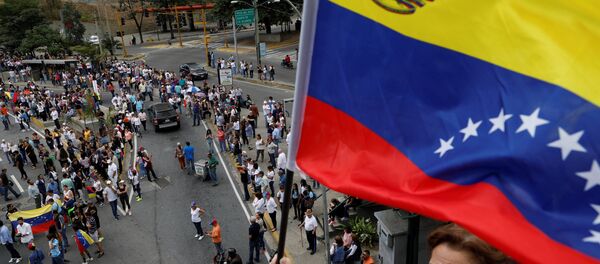In particular, the Montevideo mechanism envisages four stages: the immediate launch of a dialogue on the situation in Venezuela, the negotiation process, the drafting of an agreement and its implementation.
Meanwhile, the United Nations Security Council at the request of the United States on Thursday will vote on a draft resolution calling for new presidential election in Venezuela, a diplomatic source told Sputnik. The US resolution requests that UN Secretary-General Antonio Guterres implement UN mitigation efforts to ensure “free, fair, and credible presidential elections”, the text of the document says.
READ MORE: 'US Seems Very Intense on Advancing a Military Solution in Venezuela' — Prof
On 23 February, the Venezuelan opposition tried to forcefully bring the US-sponsored aid into Venezuela from Brazil and Colombia. The failed attempt resulted in clashes between the Venezuelan National Guard officers, who prevented trucks with aid from crossing the country's border without permission, and pro-aid protesters, who tried to help force the aid into Venezuela.
READ MORE: EU Should Avoid Any 'Politicization' In Issue of Aid to Venezuela — Envoy
Venezuelan Vice President Delcy Rodriguez said that international law provided for deliveries of foreign humanitarian aid only in cases of natural disasters and armed conflicts and denied the allegations of humanitarian crisis in the country.
This past month has seen Venezuela going through a political crisis. It started on 5 January, when lawmaker Juan Guaido was elected as the president of the opposition-controlled National Assembly, which all other branches of power have been refusing to recognized since 2016. On 23 January, shortly after the Venezuelan Supreme Court annulled his election, Guaido declared himself the country's "interim president." Venezuelan President Nicolas Maduro, who was sworn in for his second term on 10 January after winning the May election, which part of the opposition boycotted, qualified Guaido's move as an attempted coup and accused Washington of staging it.
READ MORE: Maduro: Guaido Will Have to 'See Face of Justice' After Return to Venezuela
The United States immediately recognized Guaido, after which around 50 other countries followed suit. Russia, China, Cuba, Bolivia and a number of other states have, in the meantime, voiced their support the legitimate government of constitutionally elected Maduro. Mexico and Uruguay have refused to recognize Guaido, declaring themselves neutral and promoting crisis settlement via dialogue.





